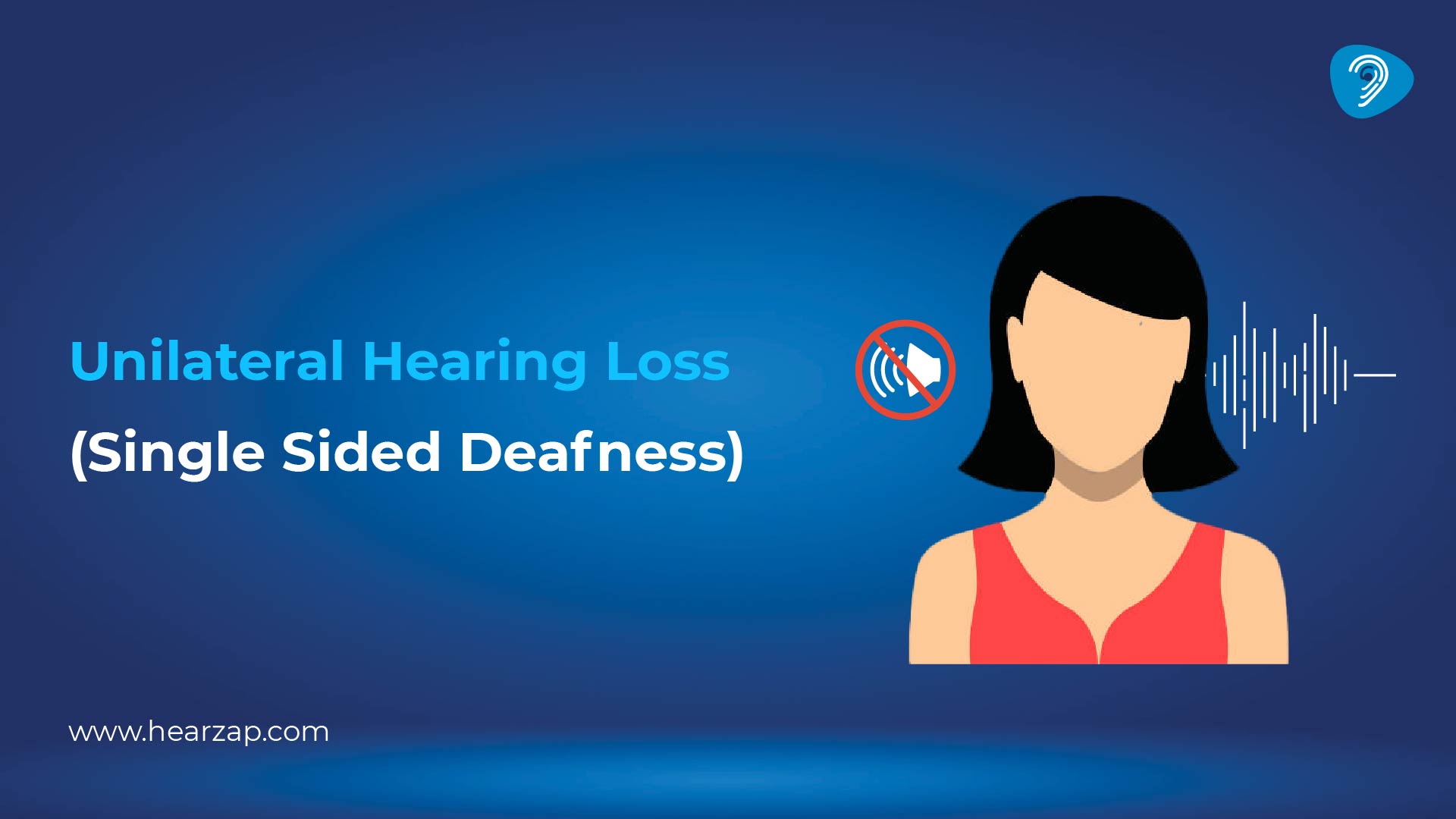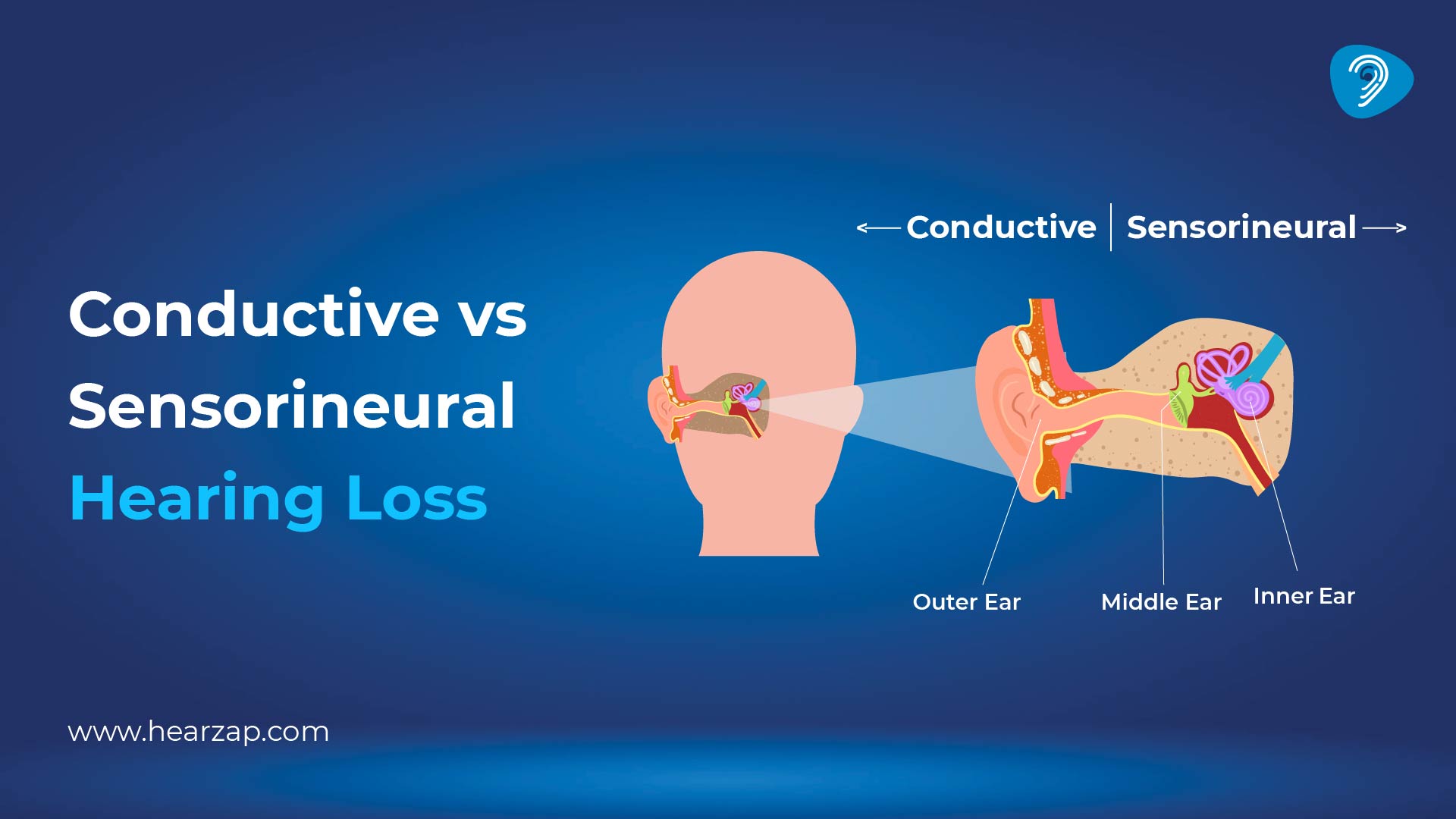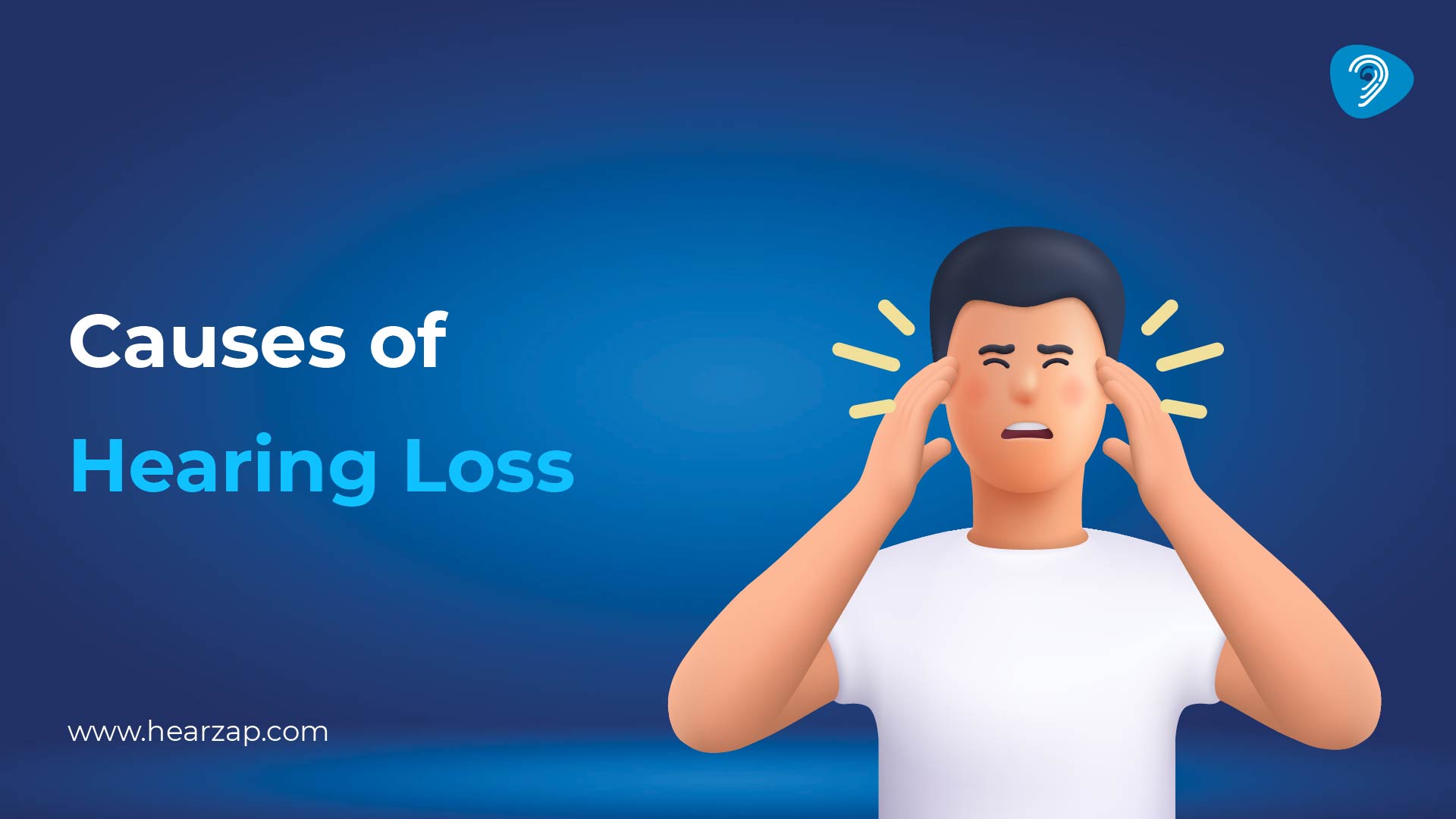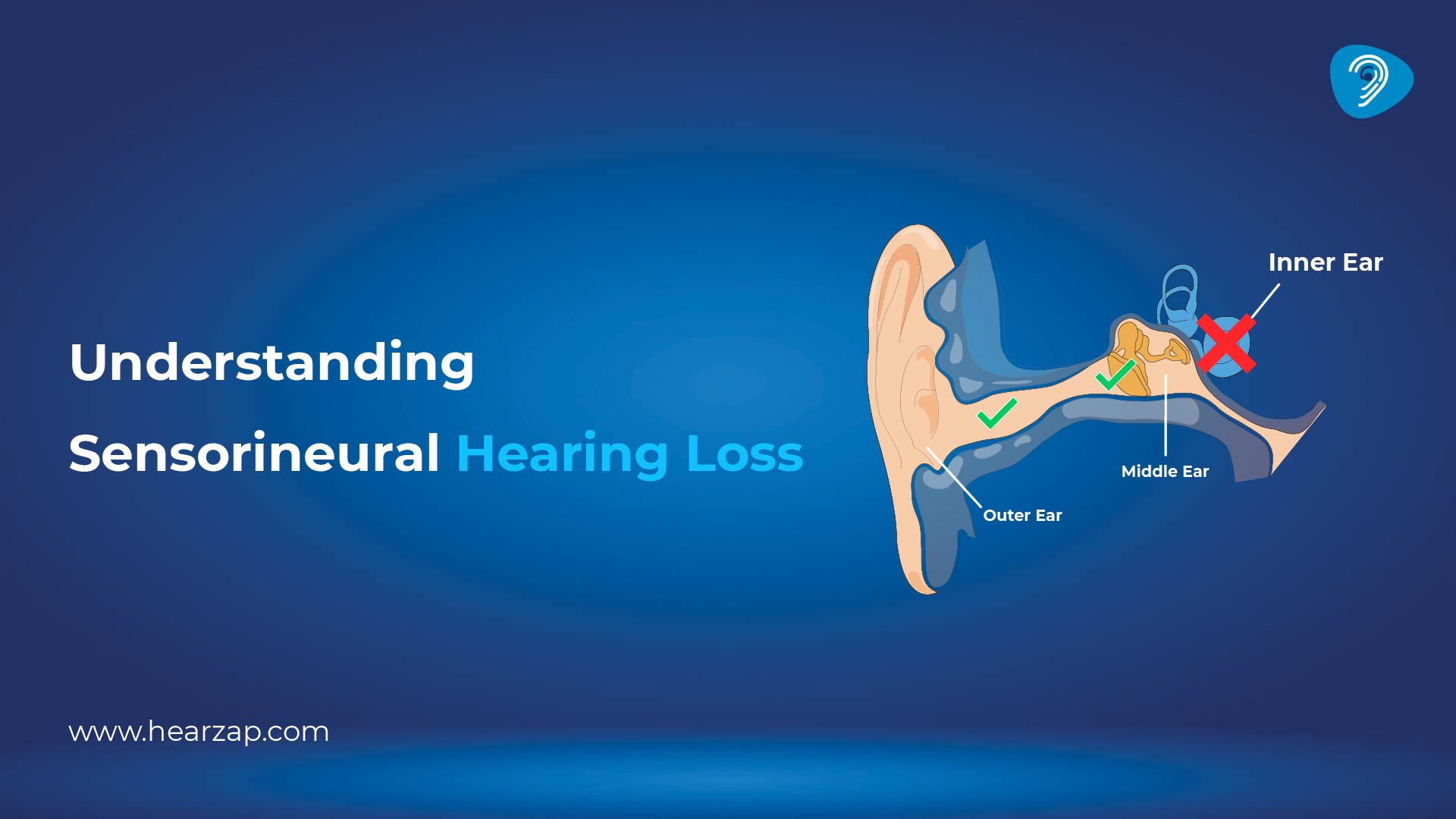HEARING LOSS
Unilateral Hearing Loss (Single-Sided Deafness)
By Team Hearzap | July 1, 2025

Most of us take hearing for granted until something changes. If you've started to notice a difference in how you hear from one ear compared to the other, it might not just be temporary. Hearing loss in one ear, also called unilateral hearing loss or single-sided deafness, can affect your ability to follow conversations, locate sounds, and even stay balanced.
This blog will walk you through the signs, causes, and treatment options for loss of hearing in one ear—and help you understand when it’s time to take action.
What Is Unilateral Hearing Loss?
Unilateral hearing loss is when there’s a noticeable reduction in hearing ability in one ear, while the other ear hears normally or near-normally. If you're completely deaf in one ear, it's referred to as single-sided deafness (SSD). This condition can develop suddenly or gradually and affects people of all ages.
While some people are born with it, others may develop it due to illness, injury, or age-related changes. Regardless of the cause, it can make everyday listening situations more challenging.
Signs That You Are Going Deaf in One Ear
Sometimes, signs that you are going deaf in one ear are subtle. You might not notice it until someone points it out or until you're in a situation where sound direction matters.
Look out for:
- Struggling to hear conversations when the speaker is on your “bad” side
- Difficulty understanding speech in noisy environments
- Feeling off-balance or disoriented
- Frequently turning your “good” ear toward sounds
- Noticing that phone calls are clearer on one side
- Thinking others are mumbling more than usual
If any of this sounds familiar, you may be experiencing hearing loss in one ear without even realizing it.
What Causes Hearing Loss in One Ear?
There are several possible reasons for loss of hearing in one ear. Some are temporary, while others require medical attention or long-term management. Common causes include:
- Earwax blockage: A buildup can block sound waves.
- Ear infections: Inflammation or fluid can reduce hearing.
- Sudden Sensorineural Hearing Loss (SSHL): A rapid loss of hearing in one ear that needs immediate treatment.
- Acoustic trauma: A loud explosion or noise exposure can damage hearing in one ear.
- Head injury: Trauma can affect the hearing nerve or middle ear structures.
- Tumours: Conditions like acoustic neuroma may cause progressive hearing loss on one side.
- Meniere’s disease: This inner ear disorder often starts with hearing loss in one ear, along with dizziness or ringing (tinnitus).
No matter the cause, it’s important not to ignore the symptoms. Early diagnosis can make a big difference.
Living With Single-Sided Deafness
Being deaf in one ear doesn’t just mean turning your head a little more. It can affect your ability to enjoy music, follow group conversations, and even stay safe while crossing the road.
Your brain normally uses input from both ears to figure out where sounds are coming from. With single-sided deafness, this ability, called localization, is lost. You may also find it harder to separate speech from background noise, especially in busy environments like restaurants or offices.
But here’s the good news: there are solutions.
Managing and Treating Unilateral Hearing Loss
Treatment depends on the cause and severity of the hearing loss in one ear. Here are some of the most common options:
1. Medical Treatment
If your hearing loss is caused by infection, inflammation, or an underlying medical condition, medication or minor procedures may restore your hearing.
2. Hearing Aids
For many people, a specially programmed hearing aid can help balance hearing between both ears. CROS (Contralateral Routing of Signal) hearing aids send sound from the weaker ear to the stronger one, making it easier to follow conversations and stay aware of your surroundings.
3. Bone-Conduction Devices
These devices transmit sound through the skull directly to the inner ear on the good side. They’re often used when traditional hearing aids don’t work well.
4. Cochlear Implants
In severe cases, a cochlear implant may help. It bypasses damaged parts of the ear and sends signals directly to the hearing nerve.
Life After Diagnosis
Getting a proper diagnosis is the first step. An audiologist will conduct a hearing test to confirm the extent of your unilateral hearing loss and guide you through the next steps. With today’s technology and expert care, many people go on to live full, connected lives, even with loss of hearing in one ear.
Don’t delay that consultation. The earlier you act, the better your chances of managing the condition and keeping your quality of life high.
Also Read: Conductive Hearing Loss: Symptoms, Diagnosis & Treatments
Sensorineural Hearing Loss Symptoms, Causes & Treatment
FAQs
When to worry about hearing loss in one ear?
If you suddenly lose hearing in one ear, experience ear pain, dizziness, or ringing, you should consult a doctor or audiologist immediately. Sudden hearing loss can be a medical emergency.
What can be the cause of hearing loss in one ear?
Common causes include infections, loud noise exposure, earwax blockage, trauma, tumours like acoustic neuroma, or underlying health conditions. Only a hearing test can pinpoint the exact reason.
How to cure hearing loss in one ear?
Treatment depends on the cause. In some cases, medication or minor procedures can help. For permanent hearing loss, hearing aids, bone-conduction devices, or cochlear implants may offer relief.
Also Read: Can Hearing Loss Be Reversed
Related Blogs

Conductive vs Sensorineural Hearing Loss: What’s the Difference?

Causes of Hearing Loss

Noise-Induced Hearing Loss: What You Should Know About

Sensorineural Hearing Loss: Symptoms, Causes & Treatment
Contact us
We are here for all your hearing needs, from hearing tests to hearing aids. Fill out the form below, and we will give you a call soon.
Please enter a valid mobile number with 10 digits.
Recent Blogs
By None | Feb. 25, 2026
By None | Feb. 20, 2026
By None | Feb. 16, 2026
By None | Feb. 9, 2026
By None | Feb. 7, 2026









